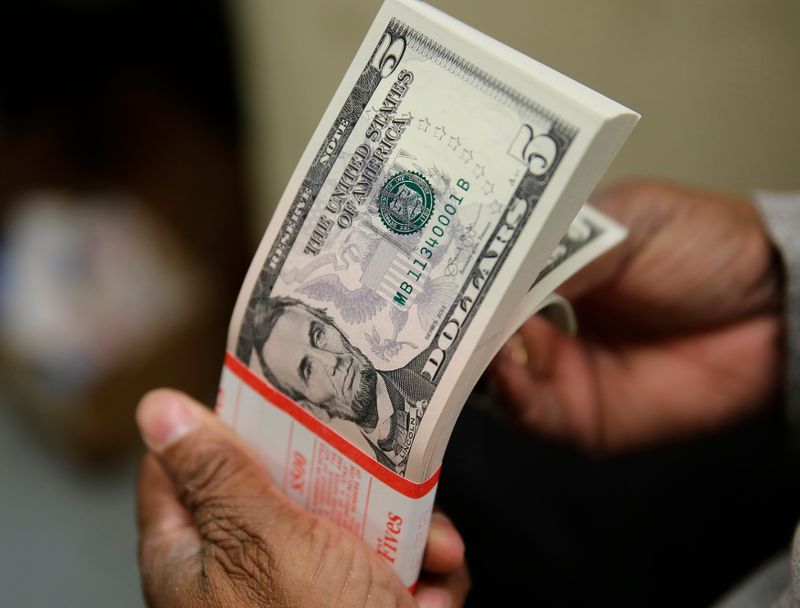By Saqib Iqbal Ahmed
NEW YORK (Reuters) – The dollar slipped against the euro for a third straight session on Tuesday, following a Reuters story that European Central Bank policymakers are considering raising interest rates by a bigger-than-expected 50 basis points at their meeting on Thursday to tame record-high inflation.
The rebound in the euro, which sent it further away from the sub-parity levels of last week, coincided with falling expectations for an aggressive 100 basis points hike from the U.S. Federal Reserve this month, which knocked the dollar.
“Currencies continue to revolve around expectations for central bank policy,” said Joe Manimbo, senior market analyst, at Western Union (NYSE:WU) Business Solutions in Washington.
“We are now seeing a subtle but meaningful shift in the outlook for trans-Atlantic monetary policy, and that’s proving a good thing for the euro,” Manimbo said.
The euro rose to as high as $1.0269, up 1.2% on the day and its strongest since July 6 as money markets priced in a 60% chance of a 50 basis points hike on Thursday, up from 25% on Monday. It was last up 0.87% at $1.0229.
The euro has rebounded after slipping below $1.0000 last week, its first foray below parity since 2002.
“If (European Central Bank President Christine) Lagarde doesn’t deliver, or doesn’t deliver as much as traders are hoping for, parity is likely to be taken out lastingly,” Action economics’ Natascha Gewaltig said in a note.
Investors were also keeping an eye on political drama in Rome with the Italian government mired in uncertainty over whether Mario Draghi will continue as prime minister.
Against a basket of currencies, the dollar was 0.7% lower at 106.7. The index remains close to the two-decade high of 109.29 touched last week.
Analysts are reluctant to turn bullish on the euro, however, given ongoing concerns about supplies of natural gas and the hit to its economy and how hawkish the ECB can really be.
“In our view, this bounce is likely to prove short-lived and should provide better entry levels for short euro positions,” said Dominic Bunning, head of European FX research at HSBC.
Traders are also preparing to see whether Russian gas on Thursday resumes flowing through the Nord Stream pipe to Germany after a shutdown for scheduled maintenance.
Russian gas flows via the Nord Stream 1 pipeline are seen restarting on time on Thursday after the completion of scheduled maintenance, two sources familiar with the export plans told Reuters.
Elsewhere the Australian dollar rose 1.2% to $0.6898 after Reserve Bank of Australia policymakers said they saw the need for more policy tightening on top of recent hikes.
Sterling gained 0.273% to $1.1986, helped by the dollar’s broad weakness.
In cryptocurrencies, bitcoin rose about 5% to a fresh one-month high of $23,476.89, shaking off the weakness that has engulfed it in recent weeks.



